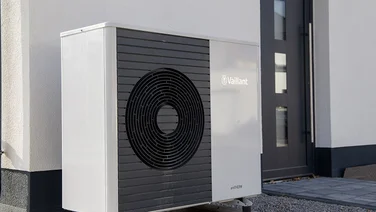We receive a small fee from trusted installers when you request a quote through our site. This helps us keep our content independent, well-researched and up to date – Learn more
The UK is at a crossroads: we can either become a carbon-neutral country or suffer the consequences. Thankfully, the Government has set out new targets for the country to meet by 2050 – but will we be able to come together in time to meet this deadline?
According to YouGov, only 46% of businesses in the UK have made plans to go carbon neutral by 2050, and a further 31% say they have no plans at all to be net carbon neutral.
But since 60% of people want to go greener, in light of the rising energy bills, it’s in companies’ best interest to go carbon neutral.
As for the small percentage of businesses that are already busting carbon emissions – how exactly are they doing it? Is it as difficult as companies think? Can other companies follow in their footsteps? We’ll cover all your questions in this article.
What’s on this page?

The UK’s largest companies to go carbon neutral
1. Sky
With over 23 million subscribers and more than 30,000 employees, Sky’s carbon neutral strategy is a commendable achievement. The company went carbon neutral in 2006, and has since reduced its carbon consumption by 55%.
Sky has hit these targets by heavily reducing energy consumption, travel, waste, and water use, as well as improving fuel efficiency across its vehicle fleet. Plus, the company achieved 100% renewable electricity in 2016 through on-site wind power.
To offset the emissions that it does generate, Sky has also financed more than 30 environmental projects around the world, including renewable energy projects in India and rainforest conservation efforts in Brazil.
To take this one step further, Sky has also produced the world’s first automatic standby mode for its set-top boxes – encouraging customers to reduce their emissions. When it comes to being green, Sky has no limits!
2. Microsoft
Microsoft’s main priority when creating the Xbox One X was to dramatically reduce energy consumption. The result? An updated Xbox with power consumption 90% lower than the Xbox 360.
What’s more, Microsoft has made the production process for its products much more eco-friendly – with all of its manufacturing sites using 100% renewable energy.
Microsoft’s carbon neutrality mostly comes from its contribution to environmental projects. The company’s biggest scheme is the Sichuan China Biodigesters project, which distributes small-scale biogas plants to low-income rural households in China. The biogas can be used for cooking, heating, and lighting, saving residents from having to burn coal and firewood in open fireplaces.
So far, the project has reduced carbon dioxide emissions across 400,000 farmer households. Microsoft is certainly determined to leave its mark on the environment – for the better!
3. Logitech
This computer software manufacturer started its carbon-neutral journey back in 2018, when it invested in renewable electricity for its factories and offset any remaining factory emissions.
By the end of 2019, Logitech had gone one step further, making all of its gaming products carbon neutral (making it the first company in the industry to do so). This process was as simple as reducing the product weight, reducing the amount (and type) of plastic, and optimising energy efficiency.
Logitech has also contributed to carbon emission projects around the world. In partnership with Natural Capital Partners, the company has supported renewable energy and solar cooker projects in China, as well as conservation projects in Brazil, Canada, and Indonesia.
What’s more, Logitech has recently announced that it will be powered by 100% renewable electricity by 2030. The good news just keeps coming.
4. M&S
The pressure is on for UK supermarkets to become more eco-friendly. M&S, however, is well ahead of the curve, having been carbon neutral since 2007.
Overall, M&S has reduced its carbon footprint by a whopping 75% – and it’s still pushing for more. The company set itself new goals in 2017, aiming to reach its carbon targets of 80% by 2030 and 90% by 2035.
So how is the company making such a big impact?
- Taking action on the company’s emissions – Being more efficient with transport, using low-carbon technology, and being more energy efficient. M&S’s goal is to improve the energy efficiency of stores, offices, and distribution centres by 60% by 2025.
- Developing programmes – Investing and partaking in anti-deforestation projects, as well as sustainable cotton projects in India.
- Encouraging employees and customers to reduce emissions – Improving the sustainability of M&S products, encouraging employees to be sustainable, and even setting up its own energy supplier: M&S Energy.
- Engaging in global campaigns – Working with organisations such as the World Economic Forum, Consumer Goods Forum, and Roundtable on Sustainable Palm Oil to push for more change.
M&S is the breath of fresh air that we need, and a model for UK retail stores to follow.
5. Google
Though this may come as a surprise for most people, Google has been carbon neutral since 2007. The company’s keen environmental ethos is mirrored in its products and workplaces, which include over 13 million square feet of Leadership in Energy and Environmental Design (LEED) certified offices.
As Google continues to grow, it’s able to help more people become eco-friendly by saving carbon emissions. In fact, a business using Gmail can reduce the environmental impact of its email service by up to 98%, compared with running email via on-premises servers.
On top of this, for the second year in a row, Google has powered its operations with 100% renewable electricity. Plus, in its commitment to reducing waste, in 2018 it diverted 87% of its waste from global data centre operations away from landfills.
6. Quorn
Quorn has set the ambitious goal of helping consumers reduce meat consumption by 50% by 2050. Quorn mince is responsible for roughly 90% fewer greenhouse gas emissions than beef, meaning this shift to a meat-free life will significantly reduce an individual’s carbon footprint.
In fact, by cooking with Quorn’s plant-based mince instead of beef mince once a week for a year, one person could save enough energy to boil 20,000 kettles.
In terms of the company’s own carbon footprint, over 50% of Quorn’s products have achieved certification from the Carbon Trust. Since 2012, the meat-free company has reduced emissions in its factories by 37%. You can also look out for recyclable packaging on 80% of its products.
View this post on Instagram
A post shared by Google (@google) on Jan 12, 2018 at 4:41pm PST
The UK’s mid-sized companies to go carbon neutral
7. Innocent
Innocent is pushing for healthy lifestyles and a healthy planet. The business’s aim is to remove all greenhouse gases from the production of its drinks, and to become completely carbon neutral by 2030. But what have they done so far?
- Reduced production emissions by 5% between 2015 and 2017
- Use recycled and plant-based materials for packaging
- Sourced two thirds of the electricity in production from renewable sources, with the intention of raising this to 100%
- Switched to lower carbon transport, such as trains and barges, rather their planes and cars
- Use 100% renewable electricity and biogas to heat and power its head office
- Carbon offset to compensate for emissions
- For the past 3 years, Innocent has run a Do Nation Campaign across its offices, which encourages people to make pledges to save carbon. In total, the campaign has saved 4,172 tonnes of carbon emissions (the equivalent of 26,075 flights from London to France)
8. Leon
Leon’s goal is to create fast food that is both healthy and eco-friendly. Since 2016, this ethical business has focused on three specific goals: increasing the amount of plant-based food, increasing renewable energy use, and reducing the use of plastics. But what has it done to reduce its emissions?
- Use local and seasonal food – Sticking to seasonal food means not having to import other fruit and veg from across the world.
- More veg and better meat – Currently, over two thirds of the Leon menu is vegetarian and over one third is vegan.
- Source responsibly – For its non-veggie options, Leon ensures that all meat is sourced ethically. The fish is approved by the Marine Conservation Society, the pork is RSPCA assured, and its chicken farms are checked regularly to ensure the wellbeing of the animals.
- Support global farmers – For the food and drinks that can’t be sourced locally, Leon makes sure to only buy Fairtrade products.
- Value natural resources – Leon restaurants are all powered by 100% green energy; a mixture of wind, solar, hydro, and anaerobic digestion. LED lighting is also used to make restaurants more energy efficient.
- Reduce, re-use, recycle – Takeaway food and drinks are all served with compostable packaging
- No food waste – Leon only makes as much food as they need. Forecasts are based on weather, sales from the previous year, and the day of the week (who knew people prefer salads on Mondays and Tuesdays, and burgers and wraps on the weekend?)
9. OLIO
OLIO connects neighbours with local businesses, as well as each other, so that surplus food can be shared instead of being thrown away. Whether it’s food nearing its sell-by date, spare home-grown vegetables, bread from the bakers, or the groceries in your fridge when you go away, no food goes to waste with OLIO.
On top of preventing food waste, OLIO has partnered with a handful of sustainable brands to share exclusive eco offers with customers, so they can look forward to saving a few pennies whilst also helping the planet.
What impact has OLIO had on the planet? (As of March 2020)
- 1,776,585 people have signed up to OLIO
- 3,230,988 portions of food have been shared
- 9,475,532 equivalent car miles saved
View this post on Instagram
Inspiration comes from many places. Sometimes it’s just around the corner.
A post shared by LEON (@leonrestaurants) on Sep 21, 2019 at 12:30am PDT
The UK startups to go carbon neutral
10. Chilly’s
Chilly’s is on a mission to cut out single-use plastic around the globe. Not only does this company cut back on plastic with its stainless steel bottles, but Chilly’s also works closely with multiple charities to give back to the environmental community. In 2019 for example, the company donated £200,000 to environmental group City to Sea, who are working on their Refill Project.
The Refill Project aims to make free drinking water available on every high street in Britain, which will save a billion plastic bottles by 2025, thus drastically carbon emissions from production.
11. Toast
Toast is re-inventing the way beer is made, to reduce the overall waste and CO2 emissions. The company’s zero-waste beer is created by using surplus bread from barley, and is bottled in recycled glass. What are its biggest achievements so far?
- Prevented 1 million slices of bread from being wasted
- Avoided emissions of 32.1 tonnes of CO2e
- Freed up roughly seven football pitches of land, which would have otherwise grown up to 30 tonnes of barley
So far, Toast has used its profits to donate £25,000 to forward-thinking food charities, which are changing the wasteful way companies produce food.
12. Unpackaged
Unpackaged’s vision is a world without unnecessary packaging – and its eco-friendly stores are doing just that. Check out their system below:
- Refill systems – All 13 of Unpackaged’s stores across the UK are supplied with refill stations. Here, you can bring in Tupperware to fill with pasta or grains. No plastic waste in sight!
- Zero-waste store – Not only does Unpackaged supply refill stations, but it can also help you set up your own zero-waste shop. Various workshops are set up throughout the year, or you can opt for a one-on-one session. Unpackaged won’t shy away once the business is up and running, either, and will stick with you to help you along the way.
- Zero-waste consultancy – If you’re considering making your business more sustainable, Unpackaged can provide you with specialist knowledge to help you get the ball rolling.
View this post on Instagram
Keep your drinks cooler than the North Pole this Christmas. ❄#ChillysEverywhere
A post shared by Chilly’s Bottles (@chillysbottles) on Dec 21, 2019 at 11:01am PST
What’s the verdict?
All of these companies are setting a world-class example of how businesses can be successful without the planet having to suffer. The next few years are sure to see some of the biggest environmental milestones so far – let’s hope many more businesses follow in these companies’ footsteps.
Want to learn about others ways to make businesses more eco-friendly? Read our page on the environmental impact of a four-day workweek. Or, if you’re interested in learning the difference between ‘carbon neutral’ and ‘net zero’, we’ve also got a page on that.








